'Slave labour' in the prisons of eastern Ukraine
- Published
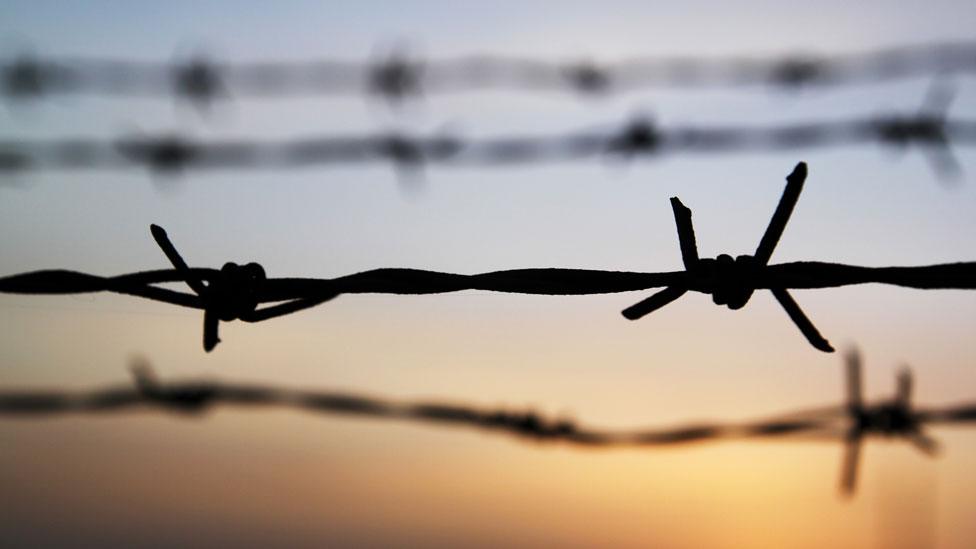
Human rights activists in eastern Ukraine say they have evidence that slave labour camps reminiscent of Soviet gulags are operating in rebel-controlled areas. A newly published report alleges that 5,000 people in the self-declared Luhansk People's Republic are held in solitary confinement, beaten, starved or tortured if they refuse to carry out unpaid work.
Alexander Efreshin had a good job and a steady girlfriend when one night, five years ago, he was out drinking beer with friends and came across a parked minibus with an open door. He climbed in, started the engine and drove a short distance. A friend then poured lighter fluid on the passenger seat and set it on fire.
Both were arrested, and at the age of 24 Efreshin was shattered to receive an eight-and-a-half year sentence for robbery and arson.
In Ukrainian prisons people who work in the prison factory have their sentence reduced by a third, so Efreshin agreed to work, sustained by the thought that he would be out in less than six years. He received a small payment in return, which he spent on improving his food ration.
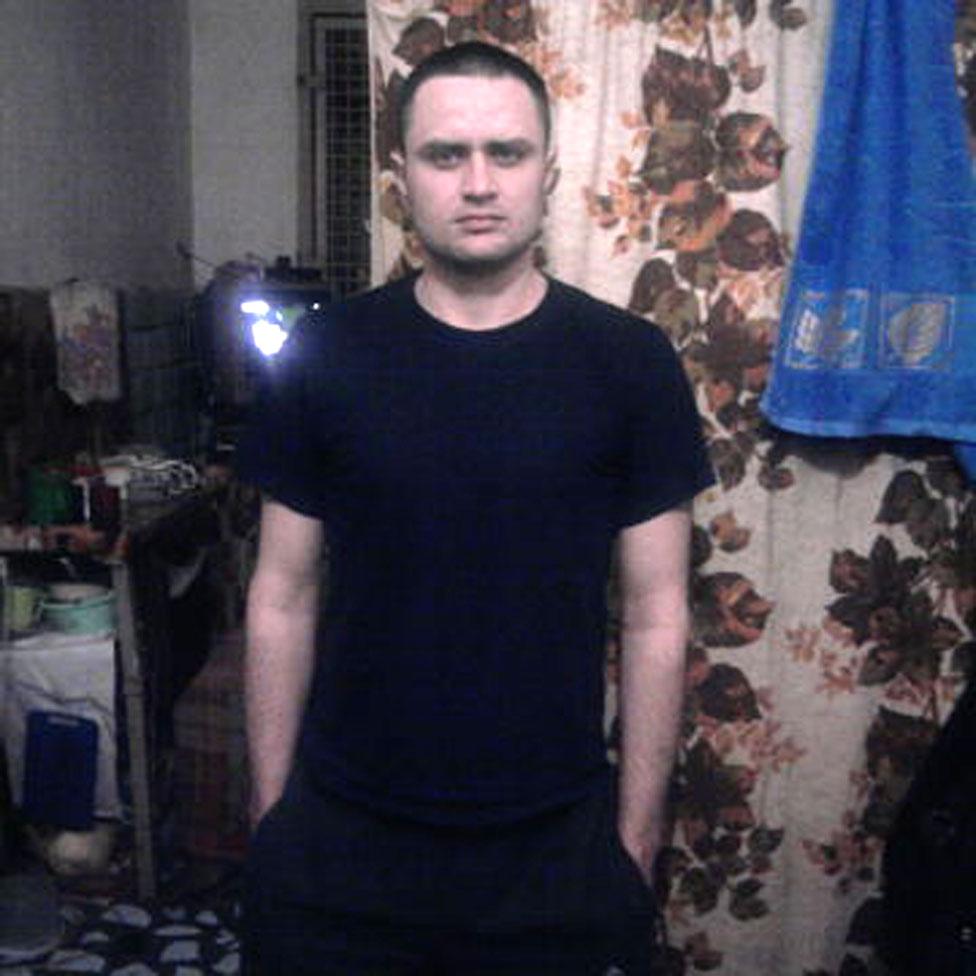
Then in 2014 conflict broke out in eastern Ukraine, and everything changed.
The prison, near the town of Krasny Luch, ended up under the control of the self-declared Luhansk People's Republic (LPR). Immediately, the conditions worsened drastically. The small payment Efreshin received in return for his labour came to a halt, anyone who refused to work was harshly punished, and the food sharply deteriorated.

Worst of all, he was told he would not be released until September 2019, after he had served the full eight-and-a-half-year sentence.
"I don't think I will survive another year in here, let alone three," says Efreshin, now 29.
"Each day they make us work for 12 hours fabricating concrete blocks. It's very heavy work.
"We have no access to medicine, no doctors or dentists, I have lost a lot of my teeth, we can't even get painkillers. We are fed only porridge. We have no option but to work. If you refuse, they throw you in the punishment cell. It's inhuman."
According to a new Russian-language report, external by the Eastern Human Rights Group, Efreshin is one of thousands of prisoners used as "slave labour" in 15 "correctional colonies" on the territory of the LPR.
Some make furniture, coffins, board games or barbed wire, others grind flour or work in rudimentary and unsafe coal mines known as "kopanki", the report says. The authors say they carried out 74 interviews with inmates, relatives and witnesses of abuses.
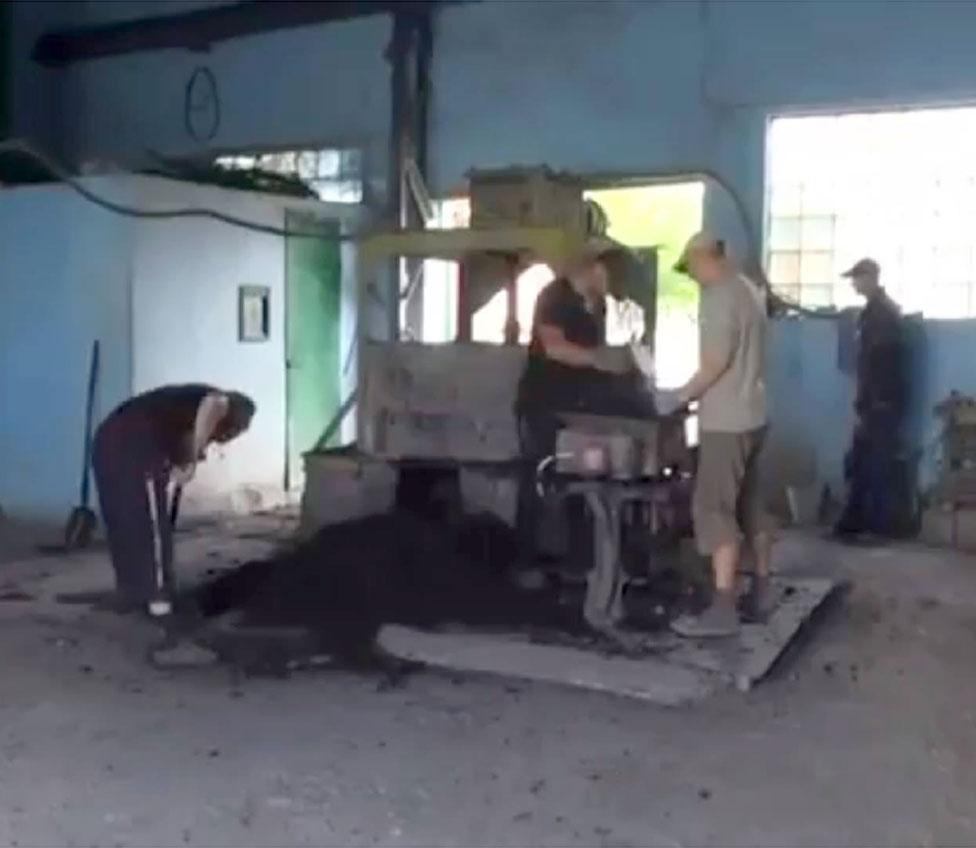
"It is impossible for an inmate to refuse to work," the report says, listing three stages of punishment for those who try it:
15 days in solitary confinement
Cancellation of visits and parcels from relatives
Beating and torture
Profits from the sale of goods made by the inmates - which came to 34m hryvnias in 2012 (£1m at current exchange rates) - are distributed among the LPR leadership, the report alleges.
"About 5,000 people work without payment every day in order to preserve their life and health, to receive visits from relatives and not to die of hunger," it goes on. "All this takes place for the purpose of enriching a certain group of people in the so-called LPR."
One man quoted anonymously in the report says that to deter prisoners from rebelling, those regarded as potential troublemakers are occasionally beaten up by masked police. On one occasion, he says, an inmate was badly hurt but refused medical help and died as a result.
Another un-named inmate is said to have been denied any food and water for three days, in order to force him to return to work. One talks about being forced to stand for eight to 10 hours per day in a courtyard that is hot in summer and cold in winter.
Efreshin's sister Irina, who lives in Kiev, talks with her brother most days on a telephone he shares with 80 other inmates. There have been occasions, however, when he has gone silent for up to a fortnight - a sign that he is being held in an underground punishment cell. Efreshin does not talk about what goes on there.
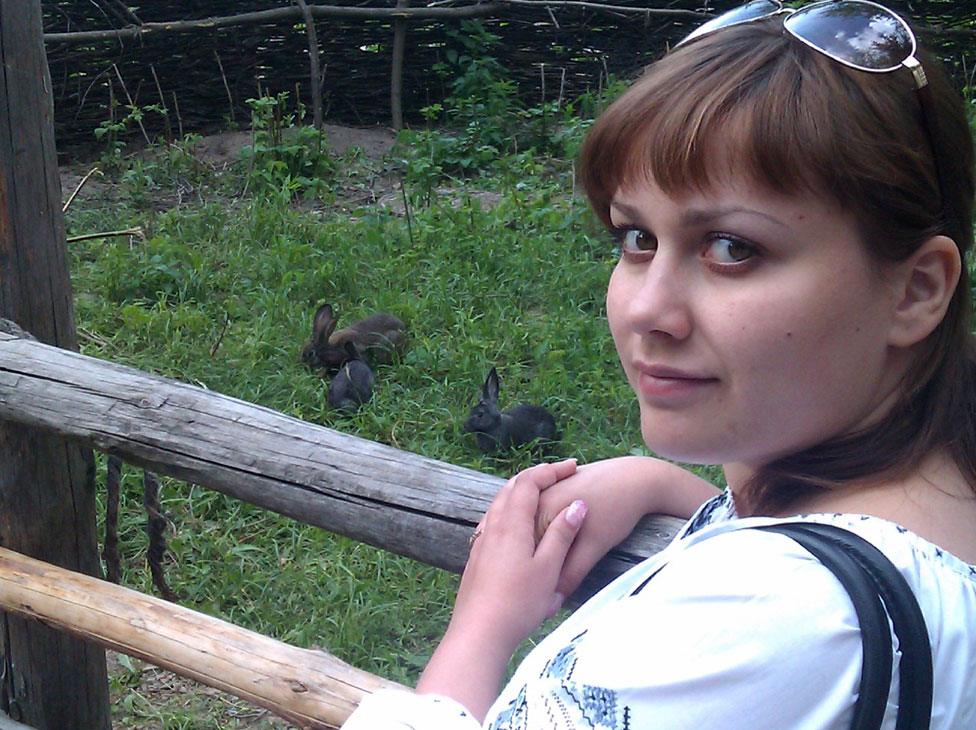
"When I don't hear from him, I sleep badly. I look at photographs of him - he's lost around 20kg," she says.
"Several times we've been told we could pay a bribe to get him released, but I'm sure it's just a scam and anyway, we couldn't raise the money. They ask for $50,000, $70,000 - it's just unreal."
To ensure that her brother is allowed to continue working, and is not thrown into the underground cell indefinitely, Irina pays 200 hryvnias per month (about £6.50) to the LPR authorities, she says, adding that other prisoners' relatives do the same.
The director of the Eastern Human Rights Group, Pavel Lisyansky, says he has evidence that a similar forced labour system is employed in prisons in the neighbouring Donetsk People's Republic (DPR), another rebel-held region, affecting a further 5,000 prisoners. A report on conditions in the DPR will be published next month.
"It's hard to believe that we are witnessing slave labour in the middle of Europe in the 21st Century. But this is happening, and something needs to be done," Lisyansky says.
"These people feel like they have been abandoned, and are without hope.
"The prisons are closed to visits from anyone except relatives. The Red Cross and other humanitarian agencies have no way of helping."
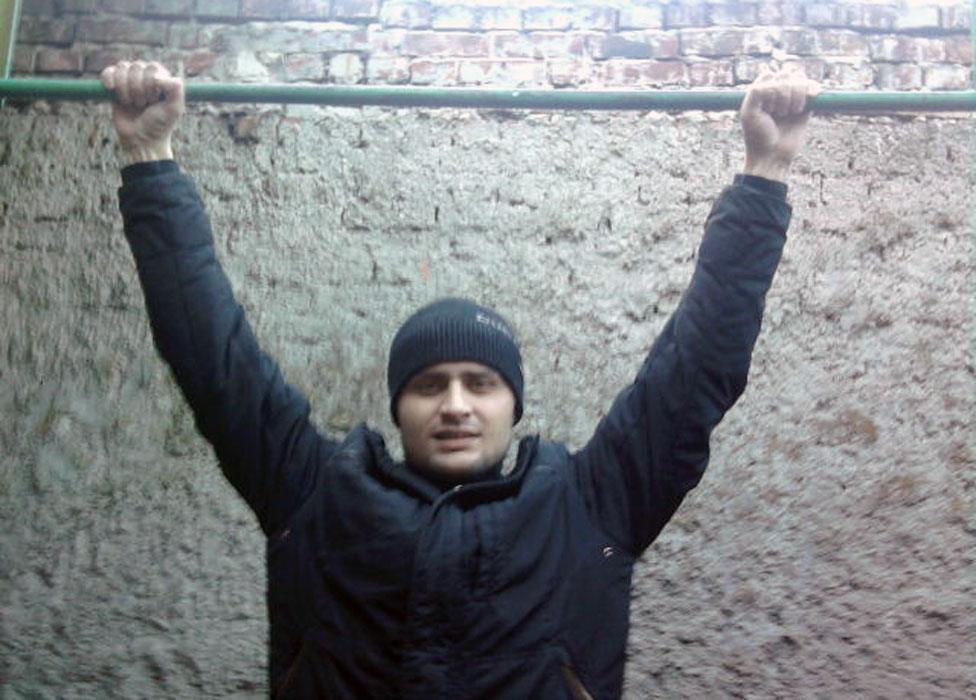
The ranks of the slave labourers are increasing with the addition of new prisoners jailed since 2014, sometimes for minor offences, Lisyansky says.
He criticises the Ukrainian government for failing to ensure that people imprisoned by Ukrainian courts are transferred out of the rebel-held areas to finish their sentences in Ukrainian prisons - as Ukrainian President Petro Poroshenko ordered in a decree issued in November 2014.
A separate amnesty ruled that the sentences of prisoners convicted of non-violent offences would be halved. In Efreshin's case, a Ukrainian court issued a ruling in April 2015 to say that he had served out his sentence and should be freed. Efreshin forwarded this to the LPR authorities appealing for his release, but they replied saying it needed to be sent to them by the "competent organs" of the Ukrainian state.
However, the Ukrainian penitentiary service refused to do this, on the grounds that the Ukrainian government does not recognise the LPR.
Attempts to reach an LPR official prepared to respond to the allegations in the Eastern Human Rights Group's report were unsuccessful, while officials in the DPR refused to comment. An article by the editor of Novorossiya Today, Georgy Morozov, described the report as "unimpressive", external.
Efreshin says he risks violent retribution from the authorities for speaking out, but feels he has nothing to lose.
His sister, Irina, agrees.
"I'm worried about how they might treat him for telling the truth about this place. But if we don't fight, nothing will change," she says.
"He's a good person, he deserves another chance at normal life."
Join the conversation - find us on Facebook, external, Instagram, external, Snapchat , externaland Twitter, external.